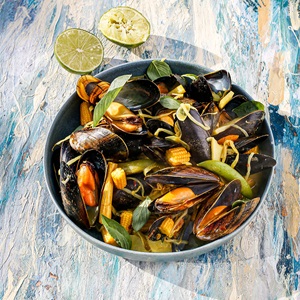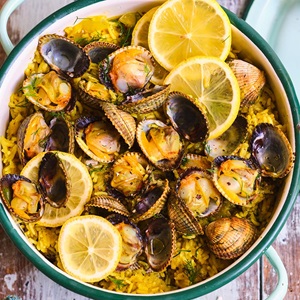“They won’t save the world, but they will solve a lot of its problems.” So says, Dr David Willer, Research Fellow in Department of Zoology at University of Cambridge writes Tom Tanner.
Care to take a guess to which foodstuff Dr Willer is attributing this hugely game-changing potential?
If your answer is bivalves, give yourself a big pat on the back as most people probably think this class of mollusc sounds more like a car part than a plentiful, protein-packed seafood.
Think oysters, cockles, mussels, clams and scallops and if you were able to answer that earlier question, you’re probably well acquainted with the culinary delights these molluscs offer. Either way, there’s a very good chance you’re unaware of the huge potential they have for both human and environmental health. Factor in the economic possibilities they offer, which could be in the billions, if not trillions, according to Dr Willer, and you start to see why some people are calling them a Super Seafood, making them the perfect focus for this year’s Sustainable Seafood September.
Let’s start with the potential planetary health benefits. Research by Dr Willer highlights the vastly lower greenhouse gas emissions attributable to the production of bivalve protein. This is not just compared with say, beef (30 times lower) nor other seafood like farmed salmon that requires 5kg of wild fish to produce a 1kg of salmon, but also many arable crops.
“The key thing to emphasize is that bivalves are a very valuable source of nutrition rich food with a huge environmental benefit,” he adds. “One of the key things to remember is the demands meat in particular places on land and water resources.”
Dr David Willer
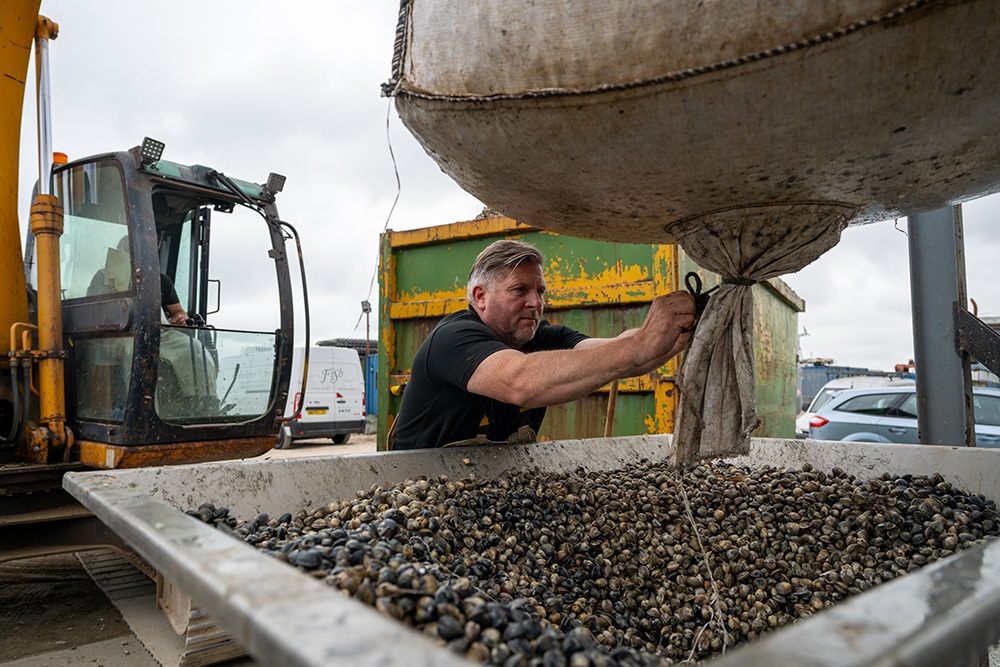
Graham Osborne, Osborne cockle fishery
That’s not taking into consideration the positive impact bivalves can have on their immediate environment.
“From a micro perspective bivalves feed on algae and other phytoplankton which means they clean the water, thereby encouraging a proliferation of undersea flora and other species of fish to flourish in a clearer coastal environment.
“They also act as a source of nutrition for fish and birds and as a barrier to currents, working effectively as eco-system engineers.”
MSC certified cockle fisheries take this into close consideration, and is achieved in the Thames Estuary by adherence to the rule of catching a third, leaving a third for the birds and a third for further breeding. While in the Dee Estuary certified fishery, there’s a specific calculation made as to the volume of cockles required to feed the migrant oyster catcher population. Both of these management efforts aim to ensure that food resources for birdlife do not become depleted, while sustainable fishing can thrive.
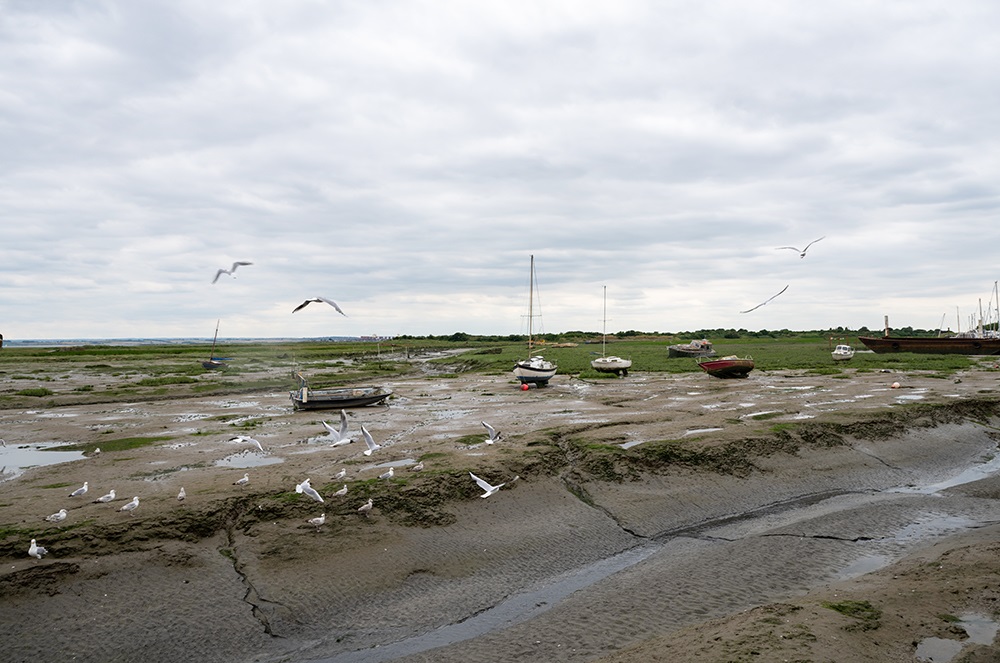
And we haven’t even begun to detail any of the human health benefits yet. The NHS recommends we eat two portions of fish a week, this includes seafood and bivalves. Making the compelling case for those, is Nichola Ludlam-Raine, dietician and author of the recently published How not to Eat Ultra-Processed.
“Mussels and cockles are types of bivalves that offer impressive nutritional profiles,” Nichola says.
These tiny shellfish are packed full of protein, zinc, Vitamin B12, Omega-3 fatty acids, iron and folic acid.
For the non-nutritionists, that translates, in practical terms, into a cheap, available source of food that’s good for your brain – boosting cognitive function, your heart – lowering blood pressure, your immune system – helping you fight infections, your joints – reducing inflammation and your red blood cells – preventing anaemia. Impressed? Well, you should be.
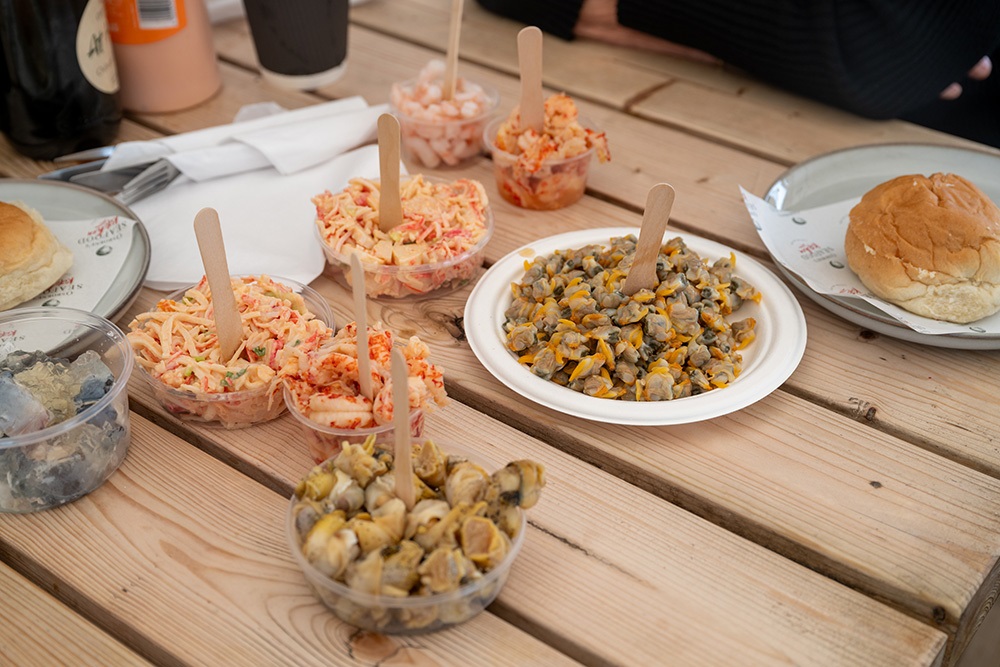
And yet, potential and possibility is all it amounts to currently. Why? Because, in our increasingly busy lives convenience and familiarity are king. Think seafood and most consumers will think about the so-called Big Five – cod, salmon, haddock, prawns and tuna.
Turn back the clock 160 years and one bivalve in particular was an absolute staple of the British diet. Londoners alone consumed 700 million oysters a year. Fast forward to the 21st century and we Brits bought only 4,500 tonnes of mussels in 2022, while 7,500 tonnes of cockles were landed in the UK in 2021. A significant proportion of the latter was exported, much of it to Spain, and a significant proportion of the former, imported, from France, the Netherlands and also Ireland.
“People want salmon or cod, something that’s convenient, appealing and affordable.”
Dr David Willer
The key, he adds, is to make what’s sustainable, everyday, familiar and accessible.
David has worked with Birds Eye’s parent company, Nomad Foods, on a project to do just that, and the frozen food giant is aiming to bring a mass market product to freezers near you. That could be a mussel burger, cake or finger, or possibly all three of these convenience foods.
Not only is David on something of a mission to get the world to eat more bivalves, he’s doing it himself. Two or three times a week he makes fishcakes with frozen mussel meat. Nichola also practises what she preaches.
“In the summer I like to add jarred cockles to salads for extra protein and flavour and love mussels as a treat from time to time.”
They’re not alone.
If you’re new to cockles and mussels, where to buy them, what to look for and then how to cook them, read on…
Larger supermarkets and specialist fishmongers should sell both, and there are plenty of MSC labelled options out there. Like any seafood, they should smell fresh like the sea. With mussels, look for clean, smooth shells that are firmly closed. Once home, they should keep for a minimum of three days in the fridge.
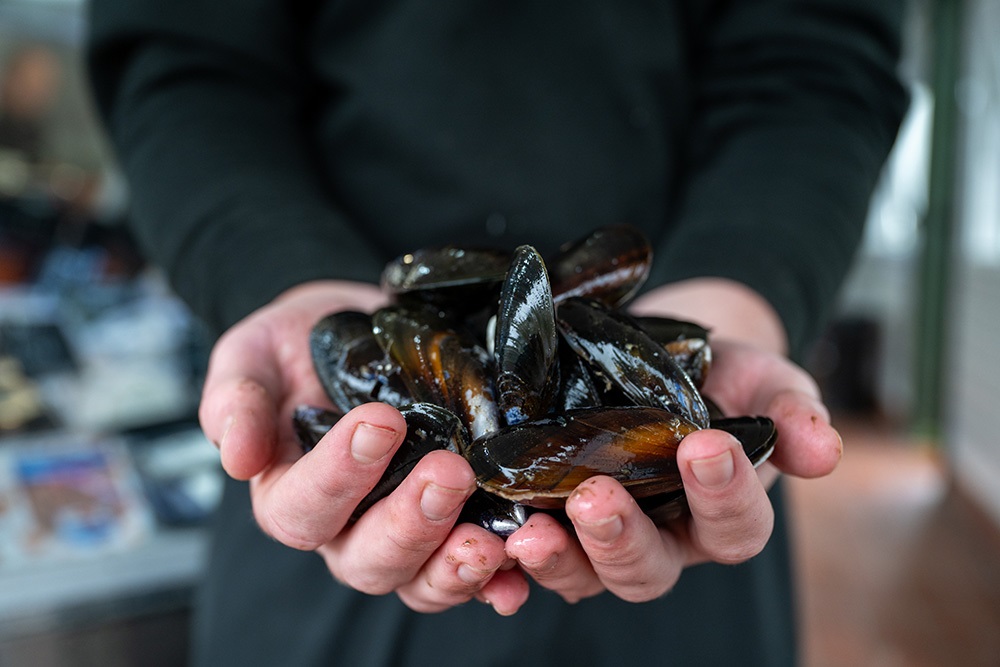
Former Scottish Chef of the Year, Neil Forbes of Edinburgh’s Café St Honore, provides his straightforward advice for preparing mussels.
“Cooking mussels is straightforward but demands respect for their natural flavours. Start by ensuring they are clean and debearded (removing the hair-like fibres that sprout from the shells that help them latch onto rocks and ropes), then quickly steam them with aromatic vegetables and a splash of white wine. They open up beautifully, releasing a briny broth that enriches the dish. Always remember, the key to great mussels is simplicity – let their natural taste shine through with minimal interference.”
Check out his recipe for hake with shellfish sauce, cockles and mussels.
The same basic principles apply with cockles. Steam them until their shells open. They’re perfect in soups, pasta dishes, stews or risottos. Or, try them the classic way, with a bit of pepper and vinegar.
To tempt more young people to try them, two of the top cockling families, the Joneses in South Wales and the Osbornes in the Thames Estuary have experimented with serving them as a warm snack or popcorn style – breadcrumbed and fried.
If the idea of cockles and mussels as convenience food takes your fancy, most major supermarkets stock them in cans and they’ll provide you with a speedy, simple addition to any number of dishes, this Sustainable Seafood September.
Dr Willer has also calculated that if we grew bivalves in just 1% of the world’s suitable coastline we could produce enough to fulfil the protein requirements of more than one billion people. The UK could and should be a world leader, he adds.
“The UK has a large coastline with the perfect environmental conditions, and we’ve calculated that we could feed most of the population with mussel protein alone.”
There are plenty of opportunities to find sustainable seafood across the UK and Ireland. Just look out for the blue MSC ecolabel and take a read of our handy shoppers guide on where to buy MSC certified products.



